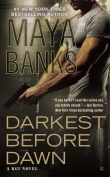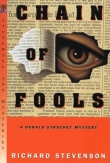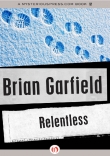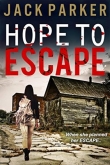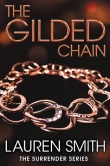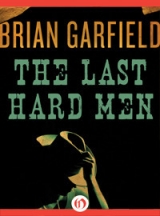
Текст книги "The Last Hard Men"
Автор книги: Brian Garfield
сообщить о нарушении
Текущая страница: 4 (всего у книги 12 страниц)
“Maybe.”
“Ahjess. I din’ figure you was goeen to let him off that easy. Bot I don’ want my ass hung on Burgade’s account, Zach.”
“Ain’t nobody’s ass going to be hung.”
“You ain’t maybe thinking of goeen looking for Burgade, are you?”
“No.”
“I thought you wanted him.”
“I intend to skewer the bastard,” Provo said, “but that doesn’t mean I’m stupid enough to go gunning for him right in the middle of that posse of his.”
“Then you got me pozzled, Zach.”
Provo smiled. “I never said I aimed to shoot him, did I. I spent twenty-eight years coming to this—I don’t aim to let him off easy with a bullet. He’s going to sweat his balls off before I’m done with him. He’s going to bleed slow and long. I told you before—I’m going to peel him down to a whimper.”
“Ahjess. But how?”
“You ask a lot of questions, don’t you.”
“I don’ like surprises, Zach.”
“You just take care of Lee Roy when the time comes. Let me worry about the rest.”
“It ain’t Lee Roy I’m worried about. It’s you.”
Provo smiled a little. “Just trust me, amigo. You’ll get rich.”
Menendez spat out the side of his mouth. “I don’ trost nobody, Zach. You know that.”
“You could always get on your horse and ride out. Why not do that, right now?”
Menendez smiled. “You want that?”
“No. I need you to help me keep an eye on the rest of these fools.”
“That’s what I thought,” Menendez said, but he didn’t press it further.
Provo kept checking his snap-lid watch. Presently it was time. He stood up. “All right. Let’s put it in the saddle.”
Provo split them up at the head of the road. Gant rode down first, bypassing the smelter, heading for the telephone line where it sagged across the creek half a mile below. Provo took Lee Roy with him and split the rest of them up, to drift in from various directions so as to avoid attention.
The smelter was a sprawl of smoke-grayed structures, conveyor ramps, shacks, corrugated roofs, a fifty-foot smoke-stack that spewed a rancid cloud into the sky. The last stragglers of the 8:00 A.M. shift were trudging into the buildings, big men in gray coveralls and railroad-style caps. Outside the manager’s building on the hill above the plant stood five or six parked chain-driven trucks and two open horseless carriages. That was where the paymaster’s office was. There was a pay window at the side of the building and a well-worn foot track where the men queued up for their pay. Beyond, to the north, was a neighboring sand-and-gravel operation, making a great racket. Provo sent Lee Roy out in front of him and they rode downslope toward the back door of the manager’s building. They dipped into a canyon and lost sight of the building, but the tall smoke-eruptive stack was still in view above the intervening hump of cactus-clumped ground. A few fleece-ball clouds drifted across the sun; it wasn’t as hot as it had been yesterday:
They tethered the horses in a cutbank-arroyo thirty yards behind the building. As far as Provo could tell, no one had remarked their arrival. Shortly Taco Riva rode in from the far end of the arroyo and dismounted, staying put to hold the horses. Portugee and George Weed came up from the direction of the sand-and-gravel quarry. Weed looking like a black sack of potatoes in the saddle: he was no horseman. Finally Menendez showed up. “Ain’t got moch time now, Zach.”
“Too much time gives a man whiskers.” Provo snapped his watch open. One minute after the hour. He could hear a train hooting in the distance; the train was a couple of minutes late but that didn’t matter, Tucson’s attention would be focused on Congress Street right about now, and that was fine.
Provo cast an eye at Lee Roy. “Got everything you need?”
“I reckon,” Lee Roy said reluctantly.
“You know how to set the charges, don’t you?”
“Ain’t no call for you to tell me how to handle my binness, Zach.” Lee Roy heaved the burlap gunnysack onto his shoulder as if it contained harmless tools instead of highly volatile blasting gear.
Portugee Shiraz unholstered both his .45 Army automatic pistols. The damn things bothered Provo for no good reason other than his ignorance of them; he had no familiarity with newfangled handguns, but Portugee claimed he could handle them fine. The Negroid lips peeled back on his dark vulpine face in an expression that was more spasm than smile.
The roots of Provo’s hair were damp with sweat but his hands were rock steady. He swept them all with his ungiving face. “Let’s go, then.”
Provo went across first, with Portugee. They moved quickly, bent double: up the cutbank, across the flats through the brush, up shoulderblade-flat against the wall beside the back door.
No one inside the building gave any alarm. There was only one window on this side anyhow—possibly a latrine or storeroom. Provo made an arm signal and two heads appeared at the lip of the cutbank. Weed and Lee Roy came humping it over the edge, Menendez right behind them. They came in tight, sweating, and Provo nodded to Portugee. Portugee palmed the latch of the door and tested it. It wasn’t locked. He swung it open and went in. Provo twisted through the doorway right behind him and braced the riot gun against his lip.
They were in a clerical office—four desks: two women secretaries, a clerk type in a green eyeshade, and a middle-aged man at the back desk in shirtsleeves and mining-engineer boots.
“Not a word out of anybody,” Provo hissed, “or you get dead.”
Shock and terror chased each other across the four startled faces. Menendez whipped inside and strode across the office to the nearest door: wrenched it open and went in gun first.
One of the women started to babble something incoherent in a tiny falsetto voice. Portugee took two long strides and clapped his palm over her mouth, digging his thumb and fingers into her cheeks, holding his big .45 auto on the others. Weed sidled toward the front of the room to post himself on the front door.
Menendez came out of the back office prodding a man at gunpoint. That had to be the paymaster. The man was loose-fleshed, florid, overweight, pale hair going thin over a pink scalp. He was swallowing in regular spasms and his eyes looked like the fishy popeyes of a hyperthyroid victim.
Provo wheeled to the door near him and pulled it open. It was a closet, filled with shelves of order blanks and stationery. He pushed it shut and moved deeper into the room. Portugee Shiraz took his hand away from the woman’s mouth. She scrubbed her lips violently but didn’t make a sound. Portugee said, to no one in particular, “Everybody stay quiet like a mouse and nobody gets their-selves hurt.”
Provo said, “We’re going to tie you up and put gags in your mouth.” He talked in a very low voice; he didn’t know how thin the walls were, or how many others were in the building. “Don’t fight us and we won’t hurt you.”
Lee Roy put down his gunnysack and produced cut-up lengths of rope and wads of rags. Provo and Menendez kept guns on everybody while Portugee and Lee Roy went around tying them up. It didn’t take long. They tied everybody in the back corner of the office and left them there on the floor—everybody but the paymaster. Portugee knotted the paymaster’s hands behind his back and prodded him in the kidney with the muzzle of the automatic. The paymaster stumbled forward.
Provo said, “Where’s the safe? Back in that room?”
“Ye-yes. But you won’t–”
“Please don’t tell me I’ll never get away with it,” Provo said. “Just give us the combination.” He was walking the man into the back office as he spoke.
The vault was built into the back wall. Big, substantial, with wheels on it like steamship valves. There were two big combination dials.
The paymaster whimpered and Provo struck him along the cheek with the barrel of his gun. “Quit it. The combination. I ain’t going to ask again.”
“I’ve only g-g-got half of it, mister. I swear to God. The company manager, he’s got the combination to the other d-dial.”
“And where’s this company manager?”
“D-d-d-down at the depot.”
It didn’t surprise Provo. He propelled the paymaster back to the outer office. “Tie him down and gag him. Lee Roy, in here. Get to work.”
Lee Roy lugged his sack in and looked around. “Sheeyit. That’s a big ’un.”
“Don’t stand there griping. Just blow it.”
“Will you quit awderin’ me around, Zach? Jesus.” Lee Roy studied the furniture. “Reckon I’ll have to back that big desk up against it to shape the charge. Christ, Zach, I’m gonna have to use all the blastin’ powder—it’ll make a cocksucker of a noise.”
“Get busy,” Provo said, and went back to the outer office. He set his hip on the corner of a desk and talked mildly at the four bound-and-gagged prisoners. “In a few minutes my associate’s going to blow up that vault in there. You’ll know when it’s coming. When you do, I suggest you open your mouths and breathe easy through your mouths. Otherwise the explosion might bust your eardrums. Hear?”
Portugee shoved the paymaster down on the floor with the other four. Then he went over by the front door with George Weed and stood there cleaning his fingernails with the point of an ugly-looking knife he’d taken off a Mexican in the shack in Gila Bend. Portugee was never comfortable without a knife in his hand.
One of the women was fat and middle-aged. Her swollen cheeks were wet with tears; she was whimpering like an injured animal through the gag in her mouth. Provo glanced at her with his ungiving face but said nothing.
It seemed a long time. Sweat trickled down Provo’s spine inside his shirt and linen duster. Menendez walked across the room and propped the back door fully open, and then came into the center of the room and stood slant-eyed, watching the door where Lee Roy would appear when Lee Roy’s job was done.
Portugee said to George Weed, “Sure takin’ his fucking time in there.” The two black-skinned men stood watching the front door; Weed grunted but made no other answer.
One of the prisoners was breathing hard, in asthmatic rasps. Provo went over to make sure the gag wasn’t choking him, but it was just fear that made the clerk wheeze. The eyes blinked like semaphores. Provo said mildly, “Take it easy, nobody’s going to shoot you,” and ambled back to the desk.
Portugee said, “They seen our faces. They can identify us.”
“It’s all right,” Provo said. “Burgade will figure out who done this quick enough anyway.” He smiled just a little. It occurred to him to go over and open the window inside the storage closet; but he didn’t bother; the blast would probably knock some walls down anyway, and everybody within miles would hear it. That was all right, too. He wanted noise.
In time Lee Roy appeared in the doorway. “All rat. I’m fixin’ to light the fuse. Won’t give us more’n about ten seconds. Everybody get behint some kand of cover. Leave me a space by that desk there.” He turned around and disappeared back into the office.
Provo caught Menendez’s eye and nodded slightly. Then he went across the room and wedged himself under the knee hole of the desk by the trussed prisoners. “Take it easy now,” he told them. “Remember what I said—open your mouths.”
Lee Roy came skittering into the room and dived behind the desk beside Menendez. Portugee and Weed were down behind cover somewhere near the front of the room. Provo shut his eyes and opened his mouth and breathed shallowly, waiting nervelessly.
The explosion knocked him back, rapped his head painfully against the underside of the desk. The ear-splitting thunder beat strident echoes around the enclosed space. There was an immediate smell of plaster dust and sawdust, very hot and acrid, mixed with a sulfur stink of cordite powder. Provo sneezed. Things were still falling down, making noise. He crawled out from under the desk and heard the relatively quiet crack of a small-caliber gunshot. He didn’t glance toward Menendez. “Come on.” He scuttled toward the office door. Menendez came to his feet beyond the desk and Provo could see Lee Roy’s boots lying on the floor beyond it; the boots didn’t move. Weed and Portugee stood up and faced the front door to drive away whoever came to investigate the godawful noise. Provo curled into the smoke, barked his shin against a chair leg, batted smoke with his hand, and climbed across wreckage into the big vault. Lee Roy had done his job well. The door had been smashed. Menendez said, “Chingado, what a mess.”
It was hard to breathe in the thick-hanging dust. Provo was untangling empty gunnysacks from under his coat. He passed two of them to Menendez and climbed into the vault.
He heard a sudden volley of gunshots, a flurry of voices bellowing in surprise and anger. Provo beat his way through the smoke. Menendez said, “Where’s all the focking money?”
“In here.” He coughed. Picked up the black steel cashbox and passed it to Menendez. The rest was scorched documents and ore samples. Menendez began to curse in a lackluster monotone.
“Come on then,” Provo said.
“Leche.” Menendez scooped the little handful of green-backs out of the lockbox and tossed the box away. “We been dobble-crossed.”
“Burgade,” Provo said. “Burgade put them up to it.” He stumbled out of the smoke. Sunlight lanced down in dusty beams through a ragged hole in the roof. Part of the ceiling hung sagging across the corner above the vault, ready to fall in. Provo tripped on wreckage and almost went to his knees; wheeled into the room beyond and leveled his gun.
Portugee and Weed were forted up behind a desk, training their guns on the front door. It was punctured by half a dozen holes, bullet-size. Provo said, “Back away. Come on.”
Menendez sprinted across to the back door, put his head out, looked both ways and said, “Hokay. Portugee—George.” There wasn’t any need to call Lee Roy’s name. Lee Roy lay seeping into the floorboards where Menendez had shot him.
Portugee put a bullet through the front door and whooped and ran for the back at George Weed’s heels. Provo crossed the room, firing deliberately into the front door. He spared the trussed prisoners a single glance and Lee Roy’s corpse none; went out with knuckles wrapped white around his gun and broke into a flat low run, zigzagging.
The others were ahead of him, leaping over the cutbank and dropping from sight into the arroyo. Provo was halfway across when Menendez’s head popped up at the rim. A gun at the outside corner of the building opened up on Provo and some fool’s voice yelled at him to halt. Menendez drove the shooter back with a furious blaze of fire and Provo went over the rim in a flat dive. He somersaulted acrobatically and hit the soft clay bed on his feet; stumbled, got his footing, and scrambled toward the horses.
Taco Riva held the animals patiently; passed out pairs of reins as methodically and unperturbedly as a school-teacher passing out test papers. “Where’s Lee Roy?”
“Not coming,” Provo said, winded. “But bring his horse along.” He swung up into the saddle, keeping bent over low. Menendez fired a final shot and sprinted for his saddle. Weed and Taco were getting mounted. Provo sank his heels hard into horse flanks: the horse broke into an immediate flaying gallop, throwing back clots of earth. He neck-reined savagely around in the center of the arroyo and ran uphill, firing back over his shoulder at the building to keep pursuers’ heads down. The others were getting sorted out in the arroyo behind him, lining out and drumming forward.
Provo went up past the protective shoulder of earth at a dead run and held the horse to that straining uphill gait for a quarter of a mile. He reined in to blow the horse, out of breath himself and streaming sweat.
The others came up and brought their horses to precipitate halts that spewed dust.
Portugee bawled, “What the hell—no money?”
Menendez said, “Maybe a few honnerd.”
“Shit.”
“Never mind,” George Weed said. “We just lost a gamble, that’s all. Shut up your whining, Portugee, you starting to sound too much like old Lee Roy.”
“I ain’t Lee Roy and you better remember it. Nobody’s gonna get to me that easy, Menendez.”
“Nobody’s planning to,” Menendez said mildly.
Provo said, “Shut up. Listen—we need to move. We work north around that, hogback there, quiet and easy, we don’t want anybody hearing us. Let the fools think we faded back into the mountains west. Come on—easy does it. Taco, hang onto Lee Roy’s horse, we’re going to need it.”
He lifted his reins and put the horse forward, a clambering single-foot with the horse’s head bobbing in effort, crossing uneven rocky ground.
The clothes were matted to Provo’s back and he felt a bilious rage. Somebody had persuaded that paymaster, and most likely every other cashier in town, to leave their money in the bank today. No hick sheriff would have thought of that. It had to be Burgade. Burgade was like that: unhurried, methodical, thorough, prepared for all the possibilities.
Menendez kicked his horse up alongside. “Who’s the spare horse for, Zach?” It was a question but Menendez spoke it flat, as a demand.
“Burgade set this up against us,” Provo said. “Time to start knocking Burgade down.”
“The horse is for Burgade?”
“Not hardly,” Provo said, and flicked a thin smile at him.
They worked their way wide around and headed back down toward Tucson. Crossing the Santa Cruz they picked up Will Gant where he was waiting by the severed telephone wires. The six of them trotted up the riverbank in the trees, past the quiet old quarter of town. If anyone noticed them there was no alarm. Sunlight filtered down through the treetops, dappling the ground. Behind the bulk of a freight warehouse Provo called a brief halt.
“I’ll take Will and the spare horse. Menendez, you take the rest of them on up to the Rillito and cut for Rose Canyon. Shelby and Quesada ought to be back there by now. Hole up and wait for us—we’ll be along directly.”
“What the hell you op to, Zach?”
“You’ll see. On the run, now.” He leaned out of the saddle to pick up the reins of Lee Roy’s riderless horse from Taco. Will Gant pulled off the track and let the others ride by. Provo waited until Menendez had taken them north out of sight in the trees; then he said to Gant, “Just back my play, Will, this won’t take but a minute.
Gant grunted incuriously and adjusted his great bulk on his saddle. Provo turned right past the warehouse and rode past freight corrals and a mechanics’ shop and on through a district of adobe shacks toward the big trees of the old residential district. He knew the route as if a map were engraved on his eyelids. They passed a few pedestrians who glanced at them and noticed nothing amiss and went on about their business.
North on Main Street and east on Third, left on Meyer Avenue, around past the old McKinney place and onto the quiet tree-shady street. His pulse started to pound when he drew rein in front of the house. “Step down and hold these horses, will you? I’ll be right out.”
“Nice and peaceful here, ain’t it, Zach?”
“Sure is,” he said, feeling grim and jumpy. He walked up the tile-bordered walk to the screen door, trying to look calm and businesslike. Rapped the brass door-knocker and saw movement through the screen. He put one hand inside his duster through the slot pocket and drew his revolver, holding it down against his leg, concealed by the coat.
She came to the door drying her hands on a towel. A stray lock of brown hair had fallen across her face from under her sunbonnet; she tossed it back with a shake of her head. She was a tall girl in a homespun dress. Provo’s eyes followed the lines of her body as she approached the screen door. Provo put a polite smile on his face.
She stood just inside the door. “Yes?”
“Miss Susan Burgade?”
“Yes,” she said, puzzled.
“Your daddy asked me to come over, make sure you’re all right. Expecting some hard cases in town this morning, you know.”
“Yes, I know,” she said, not altogether sure of him. “I did hear something a little while ago. Is my father all right?”
“He’s fine, ma’am. You mean that explosion—doing some blasting up to the smelter, I think. Nothing to fret yourself about. Look, ma’am, you mind if I come inside? Your daddy asked me to keep an eye on you until this business is over with. You never know what those hard cases might try.”
She didn’t open the door. “I’m afraid I don’t know you.”
He didn’t want to show his gun out here in broad daylight. He gave her a broader smile and tipped his hat back with his left hand. “I just come down to help out with this trap of his. Sam and me go back a long way together—I worked for him back when he was heading up the railroad’s security branch. Name of Carlos O’Neill, maybe you heard him mention me.”
“I can’t say I have,” she said, and unlatched the door hesitantly. “But I’m sure it must be all right. I’m sorry to seem so standoffish, Mr. O’Neill, but this whole thing troubles me, you know—I’m worried about my father, he shouldn’t have involved himself in all this. He’s not young.”
“Oh, I reckon Sam can always take care of himself,” he said, pulling the screen door open and stepping inside with his smile.
As soon as the door flapped shut behind him he showed her the gun. The smile dropped off his face as totally as if it had never been there: as if he were an actor, stepping backstage into the wings, shedding his role.
“All right, missy,” he said in a more abrasive voice than he’d used before. “Now just keep quiet and listen to me.
Fear quivered in her eyes. She backed up against the wall; her hand went to her mouth. “What is it—what do you want?” It was a tiny whisper.
A faint miasmic breeze came in through the screen, stirring the tails of his duster around his legs. “Let’s go back to your room, missy, wherever you keep your things. You’ll be needing some clothes—you’re going on a little horseback trip with us.”
Stunned, she stood back in the bedroom corner, hugging her breasts, staring at him without blinking, too unsettled to move. Provo flung open drawers and the wardrobe, found a carpetbag valise and opened it and put it on the bed. “Come on, missy, I don’t know what sort of things you need. You pack it yourself.”
She shook her head, mute. There was a thread of moisture on her upper lip. Her face, which had flooded with color in the beginning, had gone unnaturally pale. Her eyes were very large.
He took two strides and cuffed her hard across the cheek. It rocked her head to one side and left red fingermarks. She reached up with one hand to touch her cheek; she blinked and drew a ragged breath. “You—you’re Provo.”
“That’s right, missy.”
“Oh, my God,” she whispered, staring at him.
“Time’s wasting,” he said. “I don’t want to hit you again.” He pointed his gun toward the open valise.
Moving like a sleepwalker, she crossed the room to the chest of drawers and began taking things out without discrimination and throwing them into the valise. She went to the wardrobe and took down denim trousers and a shirt and stuffed them in on top. Provo saw an oilskin rain slicker hanging inside and reached for it. “Better take this along too.”
When she seemed done, he buckled the valise shut and carried it into the front of the house, prodding the girl ahead of him. “Sit down at the table over there and write me a note for your old man.”
Her face came around, hollow and pallid. “What?”
“We wouldn’t want him to fret about you, would we? He might get all het up if he didn’t know where you’d gone. Now you just sit down there and write him a little note. Tell him you’ve gone away with Zach Provo.”
“Gone—gone away where?”
“I guess he doesn’t need to know that, does he, missy?” He shoved her toward the inkstand.
She still wore her sunbonnet—she must have been out hanging wash on the line. She looked little-girlish when she sat down hesitantly and reached for the pen, dipped it into the inkwell and poised it above a sheet of paper. “I–”
“I don’t care what you tell him, missy, but write something.” He smiled slightly: “I ain’t illiterate, if it matters. I’ll want to read what you’ve written. But it doesn’t matter what you say. Go ahead now.”
The nib of the pen scratched across the paper in jerky squeaks. The silence began to unnerve Provo and he stepped forward to read over the girl’s shoulder. She shrank away from him but continued writing until she had filled most of the sheet. Then tears began to drip from her eyes, blurring the writing, and Provo took the pen out of her hand and gripped her by the elbow. “That’s enough. We’re leaving now.”
“Please,” she whispered. “Please, I beg you, don’t—”
He steered her toward the door, professing not to have heard her. When they reached the screen he stopped her. “I’ve got this gun in my hand under my coat, missy, and there’s a big man out at the curb by the name of Will Gant, a good dear friend of mine. You try to bolt for it and one of us’ll put a bullet in your leg, hear? Now you just walk out there right in front of me and climb on that horse and ride out of town between us, and there won’t be any trouble. Nobody means to hurt you, just remember that. I just mean to make your old man sweat awhile and use you for a hostage to make sure we get safe conduct out of this bailiwick. You hear me, missy?”
She nodded and swallowed.
He squeezed her arm. “Say it, missy. Say you hear me and you understand me and you ain’t going to act foolish.”
“I understand,” she said weakly.
He tightened his grip on her valise, showed her the gun, slipped it back under his coat and nodded to her. She opened the screen door and stepped outside.
He stayed close behind her down the walk. Will Gant stood watching, burly and muscular, thighs bulging against his trousers. His eyes frankly coveted the girl’s body but Gant said nothing that might have displayed surprise. Provo said, “Meet Miss Burgade, Will. She’s going to ride with us a way.”
Gant smiled and tugged at a black nostril hair. His thick lips peeled back. “Pleased to make your acquaintance, ma’am.”
“Climb aboard, missy. Time to go.”

